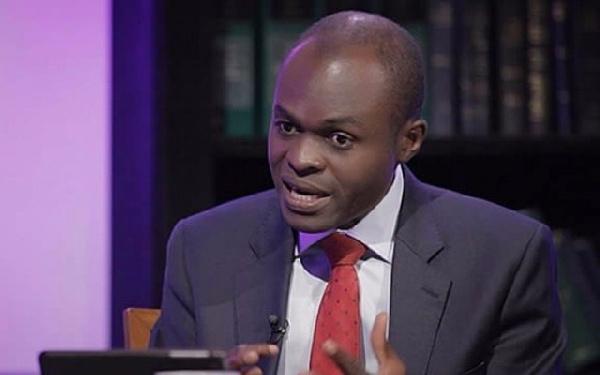Martin Kpebu, a private legal practitioner and political commentator, has ignited a discussion about the potential presidential prospects of Johnson Asiedu Nketiah, the National Chairman of the National Democratic Congress (NDC). Kpebu posits that Asiedu Nketiah, often referred to by his nickname “General Mosquito,” has a viable path to the presidency, particularly if he secures the NDC’s flagbearer nomination for the 2028 elections. This assertion rests on several key factors, primarily the enduring goodwill and significant voter base the NDC commands, evidenced by the substantial vote difference between John Mahama, the NDC’s 2020 presidential candidate, and Vice President Mahamudu Bawumia, who is widely speculated to be the NPP’s candidate for 2024.
Kpebu highlights the substantial 1.6 million vote difference between Mahama and Bawumia in the previous election cycle as a critical indicator of the NDC’s inherent strength. He argues that overcoming such a significant vote deficit within a single electoral cycle is historically challenging, suggesting that if Asiedu Nketiah secures the NDC’s nomination, he would inherit this substantial base of support, potentially propelling him to victory. This scenario assumes the full backing of the party machinery, including prominent figures like John Mahama himself, uniting behind the chosen candidate. This unified front, combined with the existing voter base, creates a formidable foundation for a potential Asiedu Nketiah presidency.
However, Kpebu acknowledges the potential challenges Asiedu Nketiah might face, particularly concerning public perception and image. He candidly addresses what he terms the “elephant in the room,” acknowledging that Asiedu Nketiah’s physical appearance and presentation may not conform to traditional expectations of a presidential figure. This, Kpebu suggests, could present an obstacle to his broader appeal. Despite this, he maintains that such concerns are not insurmountable. He argues that focusing solely on optics can be misleading, citing the example of President Akufo-Addo, who, despite possessing a polished image and impressive credentials, faced criticism and allegations of corruption during his tenure. This, according to Kpebu, underscores the importance of looking beyond superficial appearances and evaluating candidates based on their substance and potential.
The discussion around Asiedu Nketiah’s potential presidential bid gained momentum following his post-election thank-you tour across the country. This move has been interpreted by many political observers as a strategic effort to consolidate his influence and build support within the party ranks, positioning himself for a potential run in the future presidential primaries. The timing and nature of this tour suggest a calculated effort to connect with the grassroots base of the NDC, further fueling speculation about his ambitions. This engagement with the party faithful could be crucial in securing the necessary support for a successful leadership bid.
Kpebu’s analysis raises intriguing questions about the evolving political landscape in Ghana and the factors that influence voter choices. While acknowledging the importance of image and presentation, he emphasizes the enduring power of party loyalty and the potential for a strong candidate to leverage existing support structures to achieve victory. The significant vote difference between the two major parties in the previous election underscores the challenge facing any candidate seeking to bridge that divide, but it also highlights the inherent advantage for the candidate who secures the nomination of the party with the larger base of support.
The unfolding political dynamics within the NDC will be closely watched in the coming years as the party navigates its post-election strategy and prepares for the next electoral cycle. Asiedu Nketiah’s actions and the reactions they elicit within the party and the broader public will provide valuable insights into the shifting power dynamics and the potential for a new generation of leaders to emerge. The discussion initiated by Kpebu serves as a timely reminder that the path to the presidency is complex and multifaceted, influenced by a confluence of factors ranging from party loyalty and political maneuvering to public perception and individual charisma.


